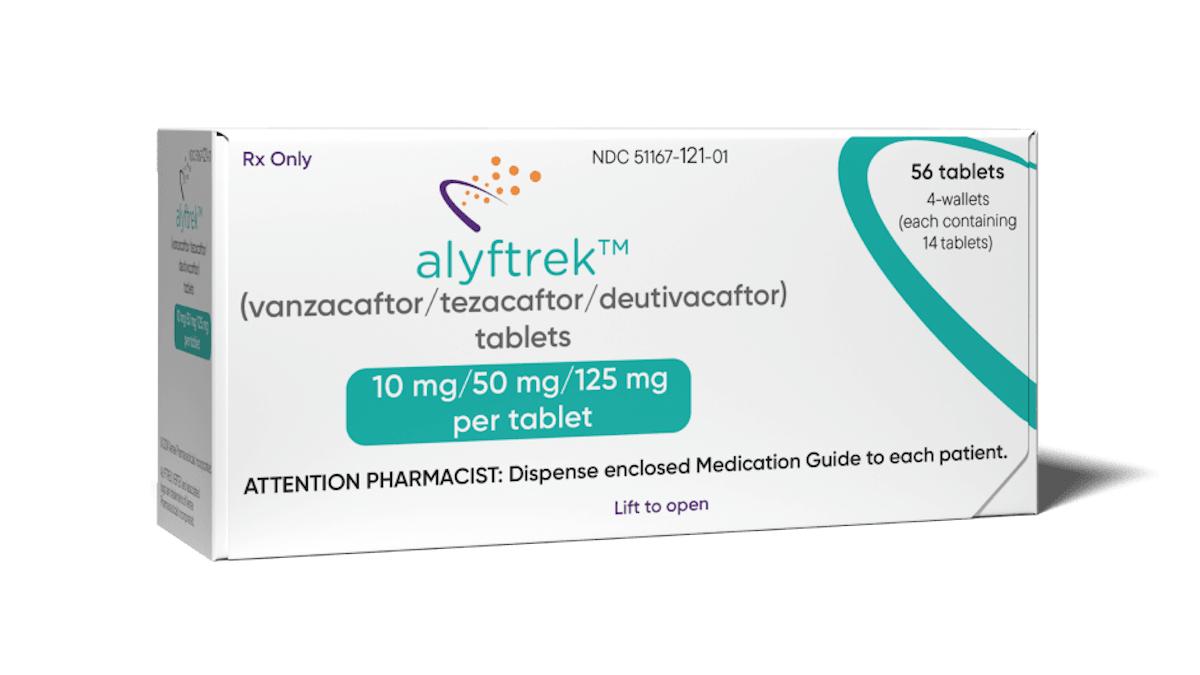Scotland's NHS could reimburse Vertex CF drugs, price row ongoing in England

Vertex is to file its two latest cystic fibrosis drugs with Scotland’s drug cost watchdog in a bid for NHS reimbursement – but an ongoing row over price in England is still unresolved.
The US pharma said it will submit files for Orkambi (lumacaftor+ivacaftor), and Symkevi (tezacaftor+ivacaftor) with the Scottish Medicines Consortium, potentially allowing more patients with CF access new therapies that treat the underlying cause of the disease.
Vertex has been developing a series of drug combinations that have allowed more and more patients to receive therapies that correct the genetic defect that causes symptoms including a build-up of sticky mucus in the lungs.
If the SMC agrees that the NHS should fund the drugs, eligible patients in Scotland could have access to the medicines – but this is cold comfort for patients in the rest of the UK who are still waiting for access to Orkambi more than three years after it was first approved in Europe.
In England, NICE said Orkambi was too expensive for the NHS in 2016, and since then Vertex and NICE have been unable to reach an agreement that will bring the drug to patients.
Vertex has also refused to file a dossier with NICE for Symkevi, which was approved in Europe at the beginning of November, saying that the cost-effectiveness body must change the way it assesses targeted rare disease drugs like Orkambi.
NICE and Vertex met again at the end of November and there has still been no progress – the US pharma said in a statement that it was “disappointed” with the outcome of a series of negotiations.
“In those meetings, we were encouraged that NICE would reassess how best to apply their methodologies to the unique set of characteristics of cystic fibrosis and our precision medicines,” Vertex said in a statement.
Vertex said it continues to believe NICE’s assessments, which in most cases apply to Wales and Northern Ireland, are not fit for purpose for targeted drugs like Orkambi and Symkevi.
“The response we received highlights how NICE is constrained by current processes and ways of working with the Department of Health and Social Care and NHS England. We continue to advocate for modernised NICE processes that are able to appropriately value innovative medicines that have the potential to extend life such as those that are used to treat patients with rare diseases, like CF.”
But NICE’s chief executive Sir Andrew Dillon said in a statement that the body had “fully explored with Vertex the way in which our approach to assessing new drugs can be applied to their treatments for cystic fibrosis.
“With the clarification we have provided, the company is now in a position to work constructively with us and to structure a proposal for access to their drugs which we will be able to support. We very much hope they will do so.”
Meanwhile patients and their families are growing increasingly impatient and calling for action, as MPs sitting on the influential health select committee consider evidence in an investigation into why the drug is not yet available.
The disease is particularly prevalent in the UK, with 9,000 patients affected, the second largest population in the world.
Christina Walker, whose son Luis is eligible for Orkambi but cannot receive it because of the funding row, said: "Its hard to express the agony CF patients and their families in England, Wales and Northern Ireland will feel at the news Vertex continue to refuse to participate in our established process.
“Personally I echo Heidi Allen MP's calls for a different approach to this situation now. Patients cannot be left untreated for any longer, while the drug company demands an overhaul of the whole system before it submits data, because they want more profit than it currently allows them.
“The Commons Health select committee must consider all options to get these life changing drugs to patients that have no other treatment option. And it cannot take another three years. More than 200 eligible patients have died already and thousands of others have lost considerable health.”













